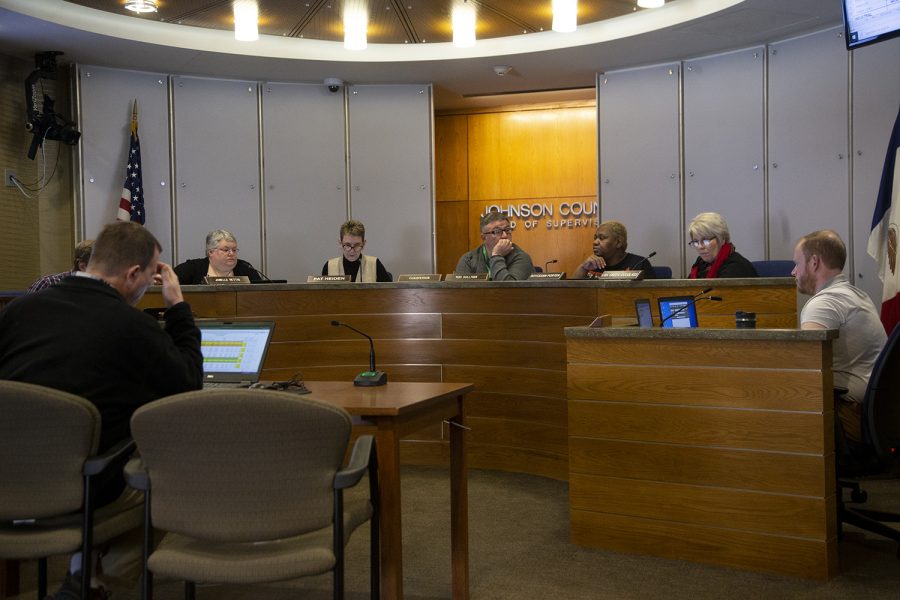Johnson County Supervisors recognize Americans with Disabilities Act Awareness Day
Johnson County Board of Supervisors recognized the 1990 civil rights act during Thursday’s meeting.
The Johnson County Board of Supervisors meets on Tuesday, Jan. 21, 2020. The Supervisors discussed budget items for the year.
July 22, 2021
The Johnson County Board of Supervisors officially recognized residents with disabilities through a countywide proclamation Thursday.
The board declared July 26 to be Americans with Disabilities Act Awareness Day, the date former President George H.W. Bush signed the Americans with Disabilities Act in 1990.
“Thanks to the board for this… for everything you do in providing accessibility and support,” Mary Vasey, a member of Extend the Dream Foundation’s board of directors, said.
The 1990 Americans with Disabilities Act is a civil rights law that prohibits discrimination based on disability in all areas of public life, including jobs, transportation, and schools. The law’s intention is to ensure the rights of people with disabilities.
July serves as Disability Pride Month in some states, but it is not nationally recognized.
The board’s proclamation urges county residents to celebrate and honor the Americans with Disabilities Act.
Vasey said when the Americans with Disabilities Act was passed three decades ago, a huge positive change came with it for people with disabilities.
“We’ve had celebrations, and they always began with a proclamation by the county board of supervisors, so I see this as a continuation of that and I appreciate it,” Vasey said.
CEO of Claiming Disability LLC Erin Noon-Kay told the board that Johnson County continues to be a pioneer for accessibility.
“I’ve lived in a lot of places, and I can honestly say Johnson County and the Iowa City area are some of the most accessible places I have ever lived,” Noon-Kay said.
Iowa City American Disability Act Coordinator and Assistant City Manager Rachel Kilburg said the City of Iowa City does not have enforcement authority over private businesses to make them more accessible for people with disabilities.
“It depends on when the building was constructed… there are a ton of layers to it. In general businesses have to operate in a way that someone who has a disability can be accommodated,” Kilburg said.
Noon-Kay praised the board’s continued use of live-streamed meetings, and encouraged the board to include closed captions to their live streams along with image descriptions to make meetings more accessible.
“In terms of the ADA and its enforcement, I think a lot of times people are confused,” Noon-Kay said. “They’re like, ‘We passed the ADA in 1990 under the Bush administration and, you know, we did it, and that’s the most monumental thing.’ Well, there’s still a lot that needs to be done in terms of accessibility.”



